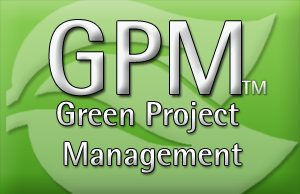On Saturday, August 18th, 2012, Joel Carboni, President of the GPM and Mark Reeson, Senior Principal Consultant of QA Ltd presented to the PMI San Francisco Bay Area Chapter introducing the P5 based PRiSM Methodology.
The meeting was held and hosted by The Keller Graduate School of Management in San Francisco.
After the introductions from the Chapter members both Joel and Mark gave a short overview of their experience and backgrounds to set the scene for the day and to establish the outline for the proceedings.
Joel and Mark ran two separate workshops to give the highly interactive audience two clear perspectives of the PRiSM framework for sustainability delivery.
Joel, an SME on Sustainability and Director of Standards for the asapm (IPMA-USA) focused on the benefits of the Sustainability Management Plan. His opening address expressed “Sustainability is not simply about changing an organisation’s culture or constraining the field in which they work, it is largely a decision based on ethics and social awareness. In order to be widely adopted however practical tools must be made available.”
His combined explanation of the uses and benefits of the Sustainability Management Plan with the PRiSM methodology using a recent practical example of how it has been used in the local government workspace left the audience in no doubt that there needs to be a change to the fundamentals of project management and that sustainability will be taking a leading role in these changes.
Having the demonstration of the tools showed the listening group that sustainability has moved from the theory and academic papers to the real world and the here and now. His overview and review of the Rio +20 Congress recently showed that there is still a lot of work ahead of anyone wanting to move sustainability and project management into a new phase.
Mark Reeson aimed his presentation at the ‘triple bottom line’ and how it still fails to answer the question in its entirety. Mark introduced to the group a newly accepted approach, namely the P5 concept, explaining how business change and project management can now see change through a new lens and that each of the five elements has its place in the world of project and business change.
Demonstrating the shortfalls of the ‘triple bottom line’ in a constructive and not demonstrative manner meant that the audience had the opportunity to challenge the concept and then as the presentation developed, embrace a new look of how this can be used in each and every part of business development and change. By the end of the session, Mark left the audience asking for more and wishing that the session was longer and that more time could be spent learning for the future.
Mark used both humour and fact to stimulate his audience and to give practical uses and measurements for the P5 concept; this approach kept the group fully engaged and enthused from start to finish and ended on both occasions in rapturous applause.
The PMI Chapter event concluded with Mark leading an open forum for questions and answers from both sessions, allowing as requested right at the very beginning of the meeting, for the voices of the chapter to be heard, demonstrating once again that sustainability is not about just a few people making the decisions for many but instead that it is for all of us to speak together with one voice to make and lead the change into a new age for business and project management.
Here is what the participants had to say:
Pete Marsh, Deputy Vice President of the PMI San Francisco Bay Area Chapter and Program Manager at Booz Allen Hamilton, a leading provider of management and technology consulting services since 1914 stated: “This is our 8th seminar on Green Project Management in the last twelve months and GPM’s P5 based PRiSM methodology is the most tangible and practical solution that we have seen to date. PRiSM’s focus on processes and products directly links projects to the triple bottom line”.
PRiSM, a structured, yet adaptable, methodology leverages competencies from the IPMA ICB 3.0, knowledge from the PMI PMBOK® Guide and a sustainable framework derived from ISO: 14001.
Rosana Francescato, Program Manager at Adobe, the global leader in digital marketing and digital media solutions, stated: “When our chapter started this program, we were looking for an answer on what green project management is. There is a lot of talk and theories out there but not many solutions. This is the first time that we have seen a true answer.” “PRiSM is practical and applicable to projects that deliver products, services, and business change making it all the more relevant to PMs of all industry types.”
Anne C Ross PMP, Project Management Professional, Programme Coordinator and Creative Writer on the subject of sustainability commented: “These presentations were delivered with wonderful energy and drive, and a good talk today. Thank you for sharing your vision. One day people won’t have any other choice but to be efficient stewards”.
Stephen Reeson, Games Design student at Teesside University, Middlesbrough stated: “The event was delivered in a friendly yet professional manner leaving me enlightened by the new age for my future which I can use in my studies and development for both Games Design and any future projects that I find myself involved within the future”.

